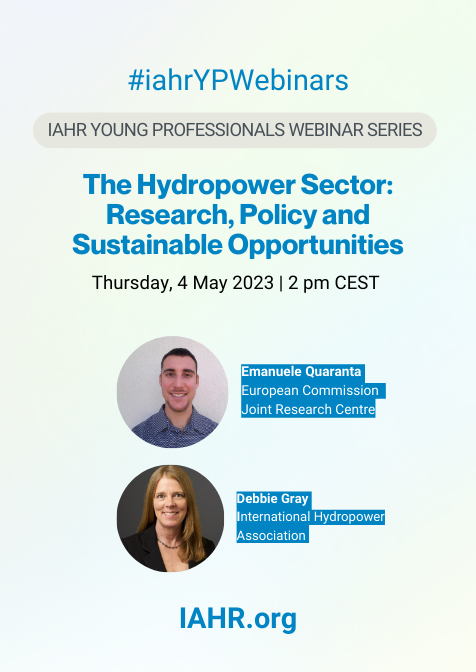IAHR Document Library

Hydropower is a major player in several EU directives and programmes such as the Water Framework Directive and the Renewable Energy Directive (REPowerEU). Therefore, it is currently at the centre of a great debate: it is a clean and renewable energy technology, and reservoirs can provide multiple benefits. However, it may also generate adverse effects on ecosystems. Hydropower should be part of the solution to climate change, as it provides low carbon electricity generation and its storage capacity helps integrate other renewable, yet intermittent, energy sources into the grid.
Sustainable hydropower needs to achieve a good balance between electricity generation, social benefits and impacts on the ecosystem and biodiversity. The achievement of such a trade-off has been the aim of several discussions, where stakeholders generally fight with “a priori” and “adamant” positions, without considering the hydropower sector as a multi-benefit and a multi-impact, sector.
The expert-lead hydropower sector webinar highlights the complexity of the field, some future sustainable opportunities, impacts and benefits, comparisons with other renewable energy technologies, research needs and policy and engineering challenges. Specific tools to assess the sustainability of hydropower systems will be discussed, particularly the G-Res tool to evaluate greenhouse gas emissions from reservoirs and the Hydropower Sustainability Standard.
| ID | Title | Authors | Year |
|---|---|---|---|
| 26750 | The Hydropower Sector: Research, Policy and Sustainable Opportunities- The Voice of Sustainable Hydropower |
Debbie Gray
|
2023 |
| 26751 | The Hydropower Sector: Research, Policy and Sustainable Opportunities. |
Emanuele Quaranta
|
2023 |